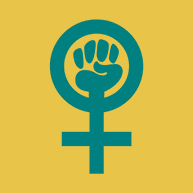

Meri Abhilasha is a holistic recovery and rebuilding program for women domestic workers and their adolescent children, particularly girls, who are at a heightened risk of sexual and gender-based violence, in the aftermath of the devastating impacts of the COVID-19 pandemic.
Keeping lived experiences of women and children front and center in its strategy, design, and implementation, this unique program seeks to implement a robust and sustainable model of recovery and development co-created, co-owned, and co-developed with the community, which is an active and integral part of the change making process.
Through the setup of two Community Support Centers (named Swabhiman to signify dignity), Meri Abhilasha seeks to empower women domestic workers and their adolescent children with space, voice, and agency, and enable them to negotiate their safety and counter discrimination and gender-based violence in every sphere of their lives.

Women domestic workers and their adolescent children are supported with a safe Space, where they participate in individual and collective learning and building strong bonds of trust and community.

Women and adolescents undertake community-based action research to identify challenges in their daily lives that directly and indirectly impact their safety and co-create solutions, developing an empowered collective Voice as a part of the process.

Women and adolescents exercise their Agency by engaging with local decision makers and authorities, sharing their collective experiences and data, and seeking implementation of their co-developed solutions.

A resettlement colony that was established between 1999 and 2000 by the Government, it is estimated that Gautampuri has a population of about 1 lakh. Residents estimate that the community houses 15000 families, largely migrants. Most women work as domestic workers, or construction workers

Situated in the heart of high rises, just off the Golf Course Road in Gurgaon, Harijan Basti is home to roughly 60,000 residents. Almost all women in the Basti are engaged in domestic work in the nearby high rises. Men work either as guards, housekeeping staff, drivers or as car cleaners in the same condominiums.